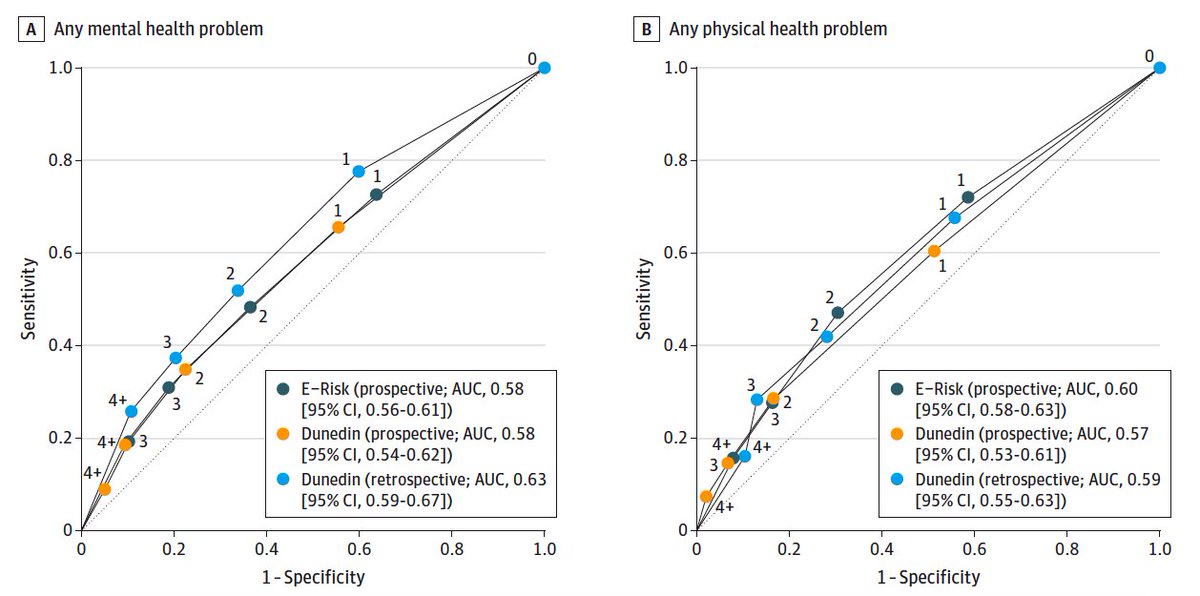Excited to share our new study in @JAMAPediatrics on population versus individual prediction of poor health from ACEs screening: https://jamanetwork.com/journals/jamapediatrics/fullarticle/2775420 with @andrea_danese. Thread below:
We tested whether information on a person’s exposure to adverse childhood experiences (ACEs) can be used to identify individuals at risk of health problems.
This is the assumption behind ACE screening, whereby clinicians assess exposure to ACEs in children and adults to identify those at risk of disease. Individuals with high ACE scores are then referred to preventative health interventions. See: https://science.sciencemag.org/content/367/6477/498
In 2 birth cohorts from the UK and New Zealand ( @ERiskstudy and the Dunedin Study), we found that ACE scores were associated with mean group differences in mental and physical health problems.
However, ACE scores had low accuracy in identifying individuals at risk of mental or physical health problems. This was the case when ACEs were assessed prospectively in childhood and retrospectively in adulthood.
We also observed overall poor accuracy of ACE scores in predicting specific health outcomes (6 physical health problems, and 7 mental health problems, shown below).
Low predictive accuracy of ACE scores likely reflects two processes: (1) individual differences in responses to childhood adversity, and (2) the multi-factorial nature of common health problems.
Overall, these results suggest that allocating health interventions solely based on ACE scores could be ineffective. People at risk of disease will be missed, and others not at risk could be offered unnecessary interventions.
Future research is needed to test whether ACE scores can be used alongside other clinically available information to predict individual risk of disease. https://www.sciencedirect.com/science/article/pii/S0165032719314065?via%3Dihub
Massive thanks to brilliant co-authors: @andrea_danese @AlanJMeehan @L_Arseneault @HelenLFisher @t_matth @candice_odgers & others not on Twitter!

 Read on Twitter
Read on Twitter




